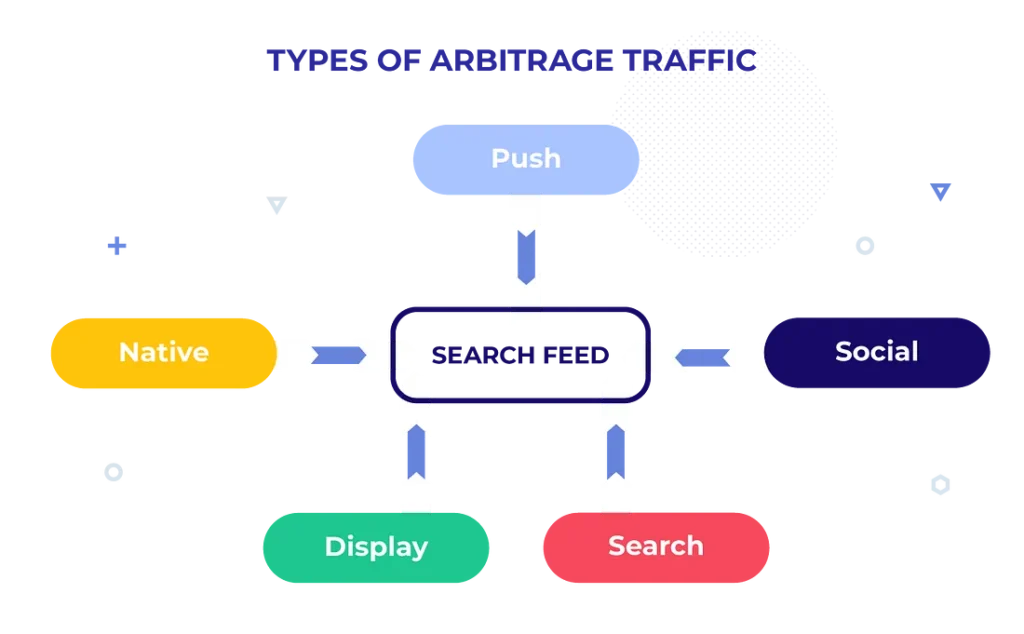Search arbitrage represents a highly nuanced approach in digital marketing, where arbitrageurs exploit the pricing inefficiencies between search engine advertising costs and potential revenues derived from user interactions on landing pages. This strategy, often overlooked in mainstream marketing discussions, has become a vital tactic for marketers adept in navigating the complex dynamics of online advertising platforms. This extensive analysis aims to unpack the intricate components of search arbitrage, detailing its operational frameworks, the challenges and risks involved, the ethical and regulatory implications, and the broader impact on the digital marketing landscape.
Table of Contents
I. Introduction to Search Arbitrage
Definition and Scope: Search arbitrage involves purchasing search engine advertisements at a lower price and subsequently directing this traffic to landing pages that generate higher revenues through other advertisements or affiliate marketing links. The profitability hinges on the arbitrageur’s ability to effectively balance the cost per click (CPC) against the revenue per click (RPC) from the incoming traffic.
Historical Context: Initially, search arbitrage emerged from the early days of internet marketing, where rapid growth and the nascent nature of search technologies created opportunities for arbitrage. Marketers quickly realized that the differential between various advertising platforms could be leveraged for profit, leading to the refinement of search arbitrage strategies.

II. Theoretical Framework of Search Arbitrage
Economic Foundations: At its core, search arbitrage is rooted in the economic principle of arbitrage—exploiting price differences between markets or products. In the context of digital marketing, this translates to capitalizing on the discrepancies between what advertisers pay for clicks and what they earn from traffic on monetized pages.
Marketing Mechanics: The operational mechanics of search arbitrage involve several key components:
Keyword Research: Identifying underpriced keywords that can attract significant traffic is fundamental. Tools such as SEMrush, Google AdWords, and Ahrefs are instrumental in this process.
Ad Creation and Management: Effective ads are created to maximize click-through rates (CTR) using compelling copy and targeted ad placements.
Landing Page Design: Conversion-optimized landing pages are crucial. These pages not only need to be aligned with the user’s search intent but also must efficiently present high-yield advertisements or affiliate links.
Traffic Conversion: The final step involves converting the directed traffic into revenue-generating actions, such as ad clicks or affiliate sales.

III. Search Arbitrage Execution and Operational Strategy
Step-by-Step Implementation:
Market Analysis: An in-depth market analysis is conducted to understand current trends, keyword pricing, and the competitive landscape.
Campaign Setup: Based on the analysis, targeted ad campaigns are set up across suitable platforms, focusing on those keywords identified as most profitable.
Performance Monitoring: Continuous monitoring and real-time adjustments are necessary to ensure campaigns remain profitable amidst market fluctuations.
Scaling and Optimization: Successful campaigns are scaled to maximize coverage, while underperforming ones are optimized or discontinued.
Tools and Technologies: Advanced technologies and tools play a crucial role in facilitating effective search arbitrage. Machine learning algorithms can predict keyword performance, automation tools can manage bid adjustments, and analytics platforms provide crucial performance data.
This content is sourced from Youtube: View more.
IV. Challenges & Risks in Search Arbitrage
Market Volatility: Search arbitrage is highly susceptible to fluctuations in advertising costs and keyword competition, which can erode margins quickly.
Algorithmic Updates: Search engines frequently update their algorithms, which can significantly impact ad performance and campaign viability.
Compliance and Ethical Concerns: Adherence to the strict guidelines set by advertising platforms is mandatory to avoid penalties. Moreover, there is an ongoing debate regarding the ethical considerations of search arbitrage, as it can sometimes lead to poor user experiences or deceptive practices.

V. Ethical & Regulatory Considerations for Search Arbitrage
Legal Implications: As digital advertising evolves, so do the legal frameworks governing it. Search arbitrage must comply with both local and international advertising laws, which are increasingly focusing on consumer protection and fair marketing practices.
Ethical Marketing: Ethical considerations revolve around the transparency and honesty of the advertisements and the quality of content on monetized landing pages. Marketers are urged to maintain high standards to foster trust and sustain long-term profitability.
VI. Future Outlook of Search Arbitrage
Technological Innovations: The future of search arbitrage will likely be shaped by advancements in AI and data analytics, allowing for more precise targeting and efficiency.
Integration with Broader Marketing Strategies: To mitigate risks and enhance effectiveness, integrating search arbitrage with comprehensive digital marketing strategies such as SEO, content marketing, and social media marketing is becoming essential.
Regulatory Changes: Marketers must stay informed about regulatory changes to ensure that their search arbitrage strategies are compliant and sustainable.

Conclusion
Search arbitrage, while complex and laden with challenges, offers substantial opportunities for those who can master its intricacies. It requires a deep understanding of market dynamics, a strategic approach to campaign management, and a commitment to ethical practices. As the digital marketing field evolves, the role of search arbitrage continues to grow, reflecting the constant need for adaptation and innovation in the face of an ever-changing online advertising landscape.
This comprehensive examination not only highlights the potential and challenges associated with search arbitrage but also underscores the importance of ethical practices and compliance with evolving regulatory standards. As we move forward, the integration of advanced technologies and holistic marketing strategies will be key to leveraging the full potential of search arbitrage in a responsible and profitable manner.
FAQs
Becoming a publisher with Bluefriday is straightforward. Begin displaying ads and earning revenue immediately.







